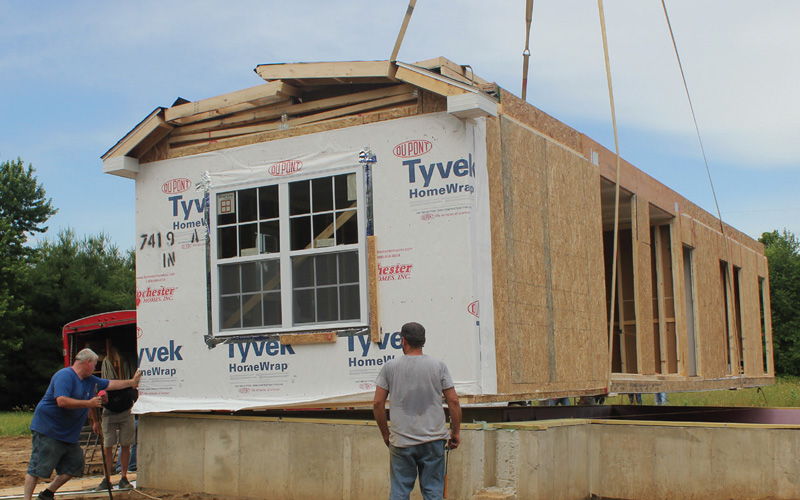Here to Help You Build Content, Community, Engagement & Leads.
Homes Guide has been helping builders and businesses build brands and communities using digital marketing. Now, we have new packages & campaigns to give you more flexibility & greater value than ever before. Find, create & purchase your marketing campaign right here.
Homes knowledge helps your business achieve more.
Our dedication to the new homes sector, combined with our digital skills makes us the right people to help you engage new customers. We are are here to help you build custom digital strategies with options from website packages & remarketing to content & social media campaigns.
help builders and businesses reach new customers with marketing options that are ready to go to work for your business. Our campaigns are here to help you create better content, engage more people, gather contacts, trigger automations and gather high quality leads.
Access & Value.
We understand your challenges in changing markets & have evolved our services to give you maximum value. With us, you can start punching above your weight.
Flexible Options.
From generous discounts & website packages & from audience extensions to lead generation campaigns, we give you unrivalled value & digital flexibility.

Builders
approved builders include some of the most highly regarded national, regional, local, and custom home builders. We show you where new single family homes, townhomes, and condos are under construction via drone video tours, photos, area maps, and neighborhood profiles. All of the critical information is brought together to help you find the right builder.
Your new construction home the Triad is just a click away. Check out our comprehensive, up-to-date list of new home neighborhoods and master planned communities. Our map will help you visualize the location of each neighborhood, while our filters help narrow your search.
The Neighborhood links offer information-packed profiles including general neighborhood and surrounding area info, photo galleries, drone video tours, available and move-in-ready homes, promotions and more. The Builder’s name also directs you to the Builder’s profile.

How Much Does It Cost to Build a House?
Maybe you’ve always dreamed of owning your own home. You’ve weighed the pros and cons of whether to build or buy, and you’ve decided to build! Congrats! But inquiring minds want to know…how much does it cost to build a house these days? And what costs will you have to pay that you don’t see coming?
The average cost to build a house in 2017 was $428,000.1 That estimate is based on a 2,800 square-foot, single-family house—which makes the cost to build a house about $153 per square foot. That’s the technical answer.
But before you rush off to the bank, hang on! There are different strokes for different folks. The cost to build a house is based on changing factors like size, location, labor, materials and current real estate trends, which make it impossible to nail down a perfectly accurate, one-size-fits-all answer. So let’s break down the average cost to build a house into each stage. Put on your hard hat, and read on.
Before You Start
Okay, you want to build a house. Awesome. But the three little pigs did too. And we all know what happened to them. Two of the pigs had the dumb idea to build their houses out of straw and sticks. The other pig built a well-thought-out house of brick. When the wolf came along, the only house left standing was the one that was carefully built—brick by brick.
Buy the Property
First, this is a no-brainer, but if you haven’t already bought the property where your house will be built, find a quality real estate agent. These experts, also called buyer’s agents, will help you hunt down and negotiate a deal on land for the perfect location to build your house. A good agent will know where to find up-and-coming areas so you can plant roots in a spot that’ll make your home more valuable over time, which is what you want!
COMPLETE GUIDE TO BUYING A MODULAR HOME
Millions of people around the country have experienced the benefits that come with buying a modular home or a system-built homes. We want more people to know about this unique type of building option. This guide provides you with the information you need to get started on the modular home building journey, and what to expect along the way
WHAT IS A MODULAR HOME?
We build homes with Building Systems. Building Systems are simply a systematic approach to building homes. The term Building Systems refers to how the structure is built rather than the form that it actually ultimately takes.
All of our modular homes are constructed using this method. Inside a modular home building facility, experienced craftsmen and women construct homes in what are termed as units, sections, or modules.
Homes are built from the inside out, so to speak. First, floors are constructed. Then come the walls, doors, windows, cabinetry, plumbing, and electrical systems. At the end of the factory manufacturing process, the unit is approximately 80% complete and thoroughly inspected. All processes are documented and triple-checked for quality and consistency. Those units come together at the jobsite to create a fully functional and beautiful home. Modular units are typically 14 foot in width and can command over 60 feet in length.
WHY BUILD MODULAR?
There are countless reasons to build a modular home instead of a home built on site, but many people are unaware of all the benefits. In fact, lots of people even have negative impressions of modular homes, assuming that they’re cheaply constructed or unattractive, even though the reality is far from that misconception.
tips for choosing a quality homebuilder
Does getting a good price mean sacrificing on quality?
In our experience at New Homes, comparing different building companies and many different designs can be hard and time-consuming. To dig up the answers you really need in your search for a homebuilder, consider the list below and put builders to the test. Then weigh up their answers and get building.
Outsourced can mean out-of-pocket.
Design and drafting in-house is more efficient all round, as the designer knows the builder’s process back to front and is likely to have previously made modifications to plans similar to yours. It’ll save time too when you request changes that need designing and costing. So confirm where your builder’s services are based and how quickly changes can be made. No-one wants to wait for their stunning new home to progress. And if the build time drags on, you’ll also be paying rent longer, plus the mortgage on your new build.
Build times versus real build times: know the difference.
Consistent build time frames are a great indicator of a homebuilder’s ability to manage your build, whether it’s a busy period or not. Some builders may offer very short build times, but that may simply be because their schedule is lighter at the time. If business grows suddenly, your build time could be pushed out considerably. Reputable builders offer a consistent time frame, always. You could request to see lists of their past and current builds to review how many weeks completed builds actually took, and how well they are keeping on track with homes under construction right now.
Cheap fixtures now can be expensive later. Why?
Quality matters. So when you ask about benchtops, sinks, taps and appliances, take note if your builder lists recognisable brand names like Caroma, Dorf and Jason Windows. They should also be able to tell you about warranties that count, like Caesarstone’s 25 years on benchtops. Larger building companies may use buying power to buy cheap even more cheaply and replacement parts could be unavailable in future. An unknown tap brand can suddenly be expensive if you need a plumber to fix a leak 13 months later.
A company’s staff tells a vital story.
Talk to a builder and find out more about their company to get a feel for how they operate. Ask who would be your contact through the build. Rapport with your initial rep is important, but a well-organised building company that can manage time frames, quality and consistent communication efficiently should then pass you onto a sales administrator, pre-start consultant and a client liaison; these are experts in each stage of your experience